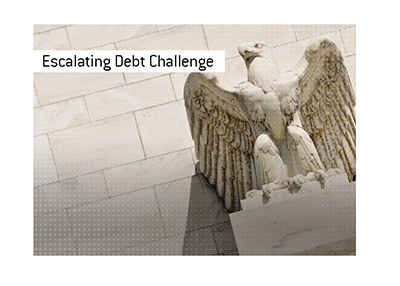Who Is To Blame in the Credit Card Crisis?
 The current struggles of the credit card industry make perfect sense when you think about it.
The current struggles of the credit card industry make perfect sense when you think about it.Many American consumers financed their large purchases (vacations, cars, renovations, etc) by tapping the equity in their homes during the surge in the real estate market.
When the real estate bubble popped, these same consumers turned to credit cards as an alternative way of financing their lifestyles.
In addition to these types of people, many American families were forced to turn to credit cards in order to make ends meet after losing jobs or being forced into taking cuts in pay.
As the economy continued to sour, credit card delinquencies rose. Many of the people who were running up large credit card debts simply couldn't pay them off as their fortunes hadn't improved.
In addition, many credit card companies dramatically increased their interest rates, which made it even harder for people with outstanding balances to dig their way out of debt.
This is clearly illustrated in data that was released today by Fitch Ratings.
According to the company, credit card losses hit record levels in February.
Their Charge-Off Index, which tracks the "write-down of uncollectable debt by credit card firms", jumped to a record 8.41% in February. This is nearly 1% higher than the previous record of 7.52% which was set in November of 2005.
This is a vicious circle - many Americans are forced into taking on credit card debt as they simply don't have the resources to meet their monthly expenses on their own. They are waiting for the job market to begin to improve, but this just isn't happening.
The credit card companies, on the other hand, are increasing interest rates in droves. They are justifying the increases by claiming that a spike in delinquencies and uncollectable debt has forced them to try and raise more money from their clients.
In the past, many consumers would simply apply for more credit if they were starting to reach their limit.
However, times have changed, and many companies are being much more picky about who they issue cards to. If they do issue a card, then there is a good chance that the credit limit won't be nearly as much as people were accustomed to receiving a few years before.
The bottom line - credit markets are tightening, and credit just isn't as available as it was a few years ago.
Who is to blame here?
Is it the consumers for spending beyond their means and tapping basically every source of credit that was available to them?
Or is it the credit issuers, who aggressively marketed and promoted their credit products during the good times?
Are the credit card companies justified in jacking up interest rates on even their best customers?
Is this creating an even bigger problem?
It will be interesting to see how long the credit card industry will be able to survive if the economy doesn't start to improve over the short-term.
Hypothetically speaking - could the US credit card industry survive an L-shaped depression, similar to the one that took place in Japan in the 1990s? Just asking..
Filed under: The Economic Meltdown



